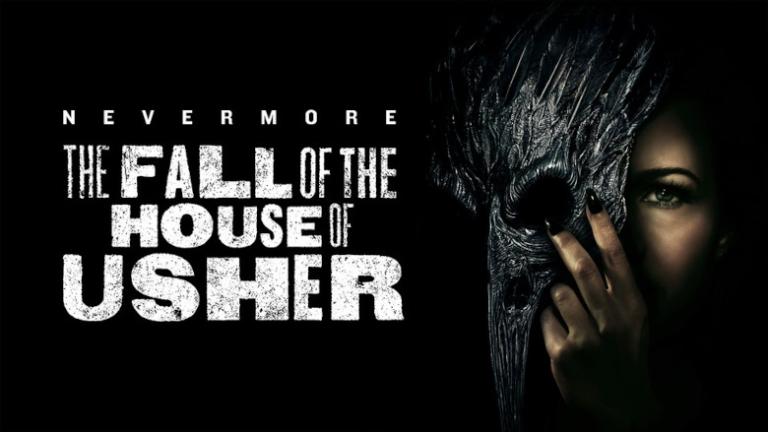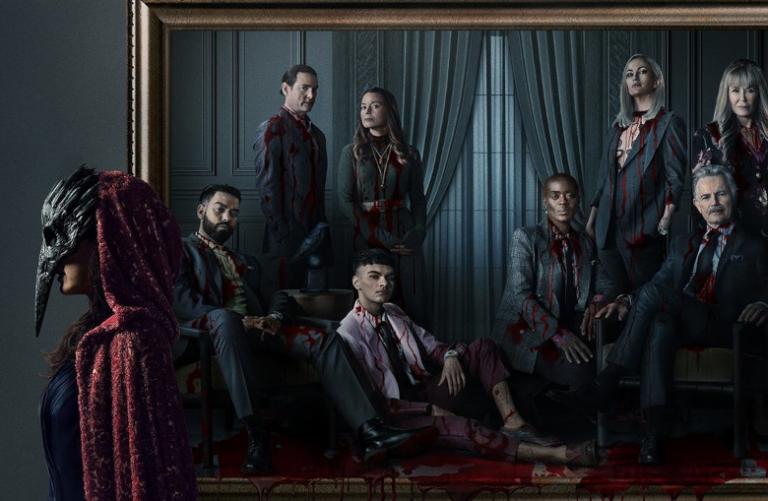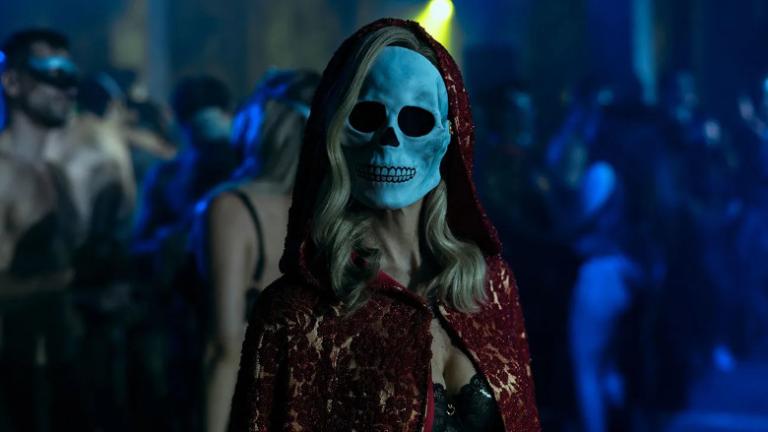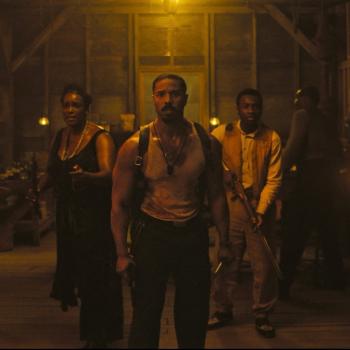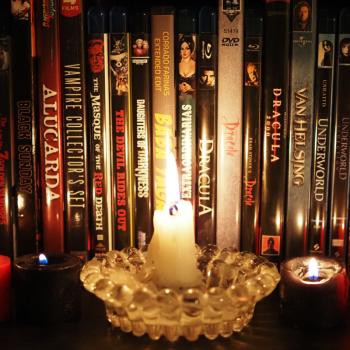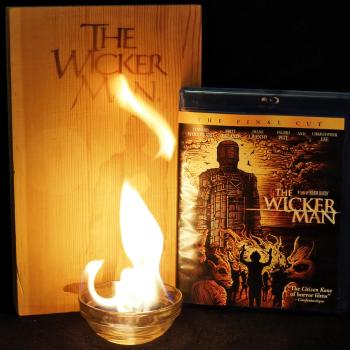The Fall of the House of Usher is brilliant. It sets Edgar Allan Poe’s stories in our time, but remains faithful to them both in theme and in atmosphere.
The eight-episode series on Netflix explores the question of how ordinary people can do horrible things. The answer it gives in the very end is accurate and useful from a philosophical perspective, and it also makes for satisfying entertainment. That’s a hard combination to produce, but show creator, writer, and director Mike Flanagan nails it.
It helps that he started with some of the best gothic horror source material in the English language. Still, others have tried and not done nearly as well. I love the Edgar Allan Poe movies made by Roger Corman and Vincent Price in the 1960s, but while they’re more fun they lack the depth this series brings to its screen adaptation.
When it comes to horror, I don’t really want to be scared. I want to be fascinated. The Fall of the House of Usher is absolutely fascinating, but it’s also scary. There’s just enough violence and gore to be realistic without being gratuitous (i.e. – without making me look away from the screen). Most of it happens to people who bring it on themselves, but sometimes it happens to characters we like and are sad to see suffer and die.
If you have the least bit of interest in horror, in Edgar Allan Poe, or in an exploration of the nature of evil, go watch The Fall of the House of Usher.
This review contains minor spoilers for the show, but nothing you probably haven’t already heard, or would figure out halfway through the first episode. This is an Edgar Allan Poe story – you know you’re not going to get a happy ending. Still, if you want to watch the show completely fresh, you should stop reading here.
A story as a framework for other stories
When Edgar Allan Poe wrote this short story in 1839, he used the old and crumbling house where the Ushers lived as a metaphor for the decline of the Usher family. There’s an actual house involved in the 2023 miniseries, but mainly “The Fall of the House of Usher” is used as a container to present several other Poe stories, all wrapped around the decline and demise of the Usher family.
It centers around Roderick and Madeline Usher, twins born out of wedlock in 1950 to Eliza Usher, a secretary, and her boss William Longfellow, CEO of Fortunato Pharmaceuticals. Longfellow never claims his children, a critical point in Roderick’s later life. Roderick goes on to father six children, the first two with his then-wife Annabel Lee and the last four with various girlfriends and one night stands. Roderick vows to do better than his father and fully accepts “the bastards” as his. He means well, at least at first.
The story bounces back and forth between a critical time for Roderick and Madeline in 1979 and the present, where they’re CEO and COO of Fortunato Pharmaceuticals and are on trial for promoting addictive painkillers as “safe and effective.”
And then the Ushers start dying one by one, each in a different Poe story. Prospero, the youngest, sets up an exclusive high-dollar party in an abandoned Fortunato factory, an orgy of sex and drugs for the rich and beautiful with “no consequences.”
Except there are always consequences.
Over the eight episodes, we see the deaths of the Ushers presented in “The Masque of the Red Death” (my favorite Poe story, and one that’s extremely relevant to our times), “Murder in the Rue Morgue”, “The Pit and the Pendulum” and more. Along the way, we learn how Roderick and Madeline moved from orphans struggling to survive to the richest of the rich.
And we see how the House of Usher falls.
This is not Luke Skywalker
The acting performances in The Fall of the House of Usher are excellent across the board. I want to call out two in particular.
The first is Mark Hamill as Arthur Pym, the Usher family lawyer. “The Pym Reaper” is a fixer whose entire life consists of cleaning up after the people who pay him, no matter what he has to do or who he has to kill. This is about as far from Luke Skywalker as you can get. It would be easy to play Pym as a caricature of a mob lawyer, but Hamill plays him as someone who is scary because he’s so believable.
The second and most impressive is Carla Gugino as Verna. Her name is an anagram of “raven” and it’s not clear what she is, other than she’s not human. She’s the mysterious figure in red in “The Masque of the Red Death” and takes other key forms in the different stories. In 1979 she offers Roderick and Madeline a life-changing deal – just as she offered deals to John D. Rockefeller, Prescott Bush, and other rich and powerful historical figures. As with Hamill playing Pym, it would have been easy for Gugino to play a stereotypical deal-making demon. Verna is much more complicated, much more real, and thus much more frightening.
A journey into evil
Roderick and Madeline were ordinary children in a difficult but far from unusual situation. They faced challenges similar to those many of us faced and are facing as young adults. Roderick wanted the father he never had. He was a kind and loving husband to Annabel Lee. Madeline wanted what so many women of her generation wanted – to be successful on her own terms without having to service a man to get there. How did they end up building an empire on lies and death?
The Fall of the House of Usher gives two answers.
The most direct answer is by crossing lines we all know we can’t cross. The first time it’s hard. You know it’s wrong and you want to do the right thing. You just want whatever is on the other side of that line a little more. Maybe the cost of doing the right thing is high. You figure you won’t get caught, even though you’re terrified you will. And so you tell a lie, betray a friend, keep your mouth shut when you know you should speak up.
The second time it’s easier. The third time it’s easier still. Eventually things like ethics and truth and relationships are meaningless. There are just ends, and whatever means it takes to achieve them.
The most important answer is given in the final monologue by C. Auguste Dupin, the prosecutor Roderick calls to hear his story before he dies:
“It don’t matter in the end, why you did any of it. I don’t fucking care why you did it.”
The Ushers weren’t “bad people” – even the ones who did very bad things. They were ordinary people placed in difficult and painful situations. Their wealth fixed one set of problems and caused another. Their power shielded them from consequences, which kept them from learning from their mistakes, which caused them to make more and deeper mistakes.
And in the end, none of that mattered. They crossed lines we learn not to cross in kindergarten, they harmed thousands and millions of people, and eventually the consequences caught up with them.
Poe is still a genius 184 years later
Don’t misunderstand: The Fall of the House of Usher is not a morality play. It’s a superb adaptation of some of Edgar Allan Poe’s best-known stories. It’s stylish, and scary, and entertaining.
And it provides some of most apt social commentary I’ve seen in years.
Pick a reason, any reason.
Just watch it.


